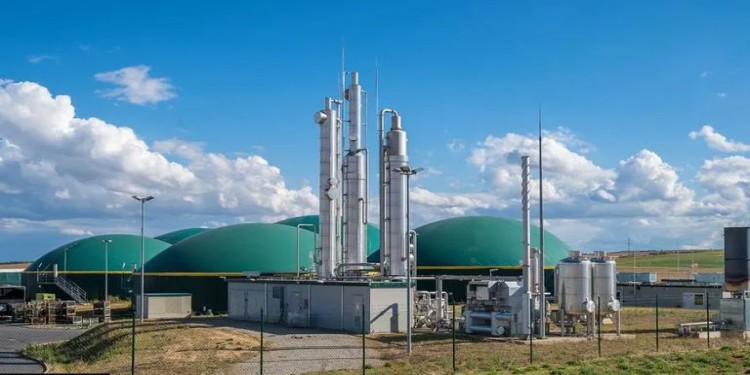In news– The Union Minister of Petroleum and Natural Gas has recently inaugurated Asia’s largest Compressed BioGas (CBG) plant in Lehragaga, in Punjab’s Sangrur.
CBG plant-
- The plant has been commissioned with a foreign direct investment of approximately Rs. 220 crores by Verbio AG, one of Germany’s leading bio-energy companies.
- The CBG plant is spread across an area of 20 acres. The plant’s present production is about six tonnes per day but soon it will process 300 tonnes of paddy straw per day to produce 33 TPD of compressed biogas using eight digesters of 10,000 cubic meters.
- The plant will consume 100,000 tonnes of paddy straw, which will be procured from six to eight satellite locations within a 10km radius of the plant.
- There shall be daily production of about 600-650 Tons of FOM (fermented organic manure), which can be used for organic farming.
- It will help cut down the need for stubble burning in 40,000 – 45,000 acres of fields, translating into an annual reduction of 150,000 tons of carbon dioxide emissions.
- It will help to contribute towards India’s COP26 Climate Change target and the target of achieving net zero emissions by 2070.
- The plant inaugurated by the Minister in Sangrur is a step in achieving objectives of the Sustainable Alternative Towards Affordable Transportation (SATAT) scheme.
What is Compressed BioGas(CBG) ?
- Bio-gas is produced naturally through a process of anaerobic decomposition from waste / bio-mass sources like agriculture residue, cattle dung, sugarcane press mud, municipal solid waste, sewage treatment plant waste, etc.
- After purification, it is compressed and called CBG, which has pure methane content of over 95%.
- Compressed Bio-Gas is exactly similar to the commercially available natural gas in its composition and energy potential.
- Compressed Bio-Gas can be used as an alternative, renewable automotive fuel.
- Given the abundance of biomass in the country, Compressed Bio-Gas has the potential to replace CNG in automotive, industrial and commercial uses in the coming years.
- The potential for Compressed Bio-Gas production from various sources in India is estimated at about 62 million tonnes per annum.
Sustainable Alternative Towards Affordable Transportation (SATAT) scheme-
- ‘SATAT’ scheme on Compressed Bio Gas (CBG) encourages entrepreneurs to set up CBG plants, produce & supply CBG to Oil Marketing Companies (OMCs) for sale as automotive & industrial fuels.
- The initiative was launched in October 2018 by the Ministry of Petroleum & Natural Gas in association with Public Sector Undertaking (PSU) Oil Marketing Companies (OMC) viz. Indian Oil Corporation Ltd., Bharat Petroleum Corporation Ltd. and Hindustan Petroleum Corporation Ltd.
- The scheme envisages to target production of 15 MMT (million tons) of CBG by 2023, from 5000 Plants.
- Under the SATAT scheme, entrepreneurs shall set up CBG plants, produce & supply CBG to OMCs for sale as automotive & industrial fuels.
- The initiative aims to produce compressed biogas (CBG) from Waste and Bio-mass sources like agricultural residue, cattle dung, sugarcane press mud, Municipal Solid Waste (MSW) and sewage treatment plant waste.














